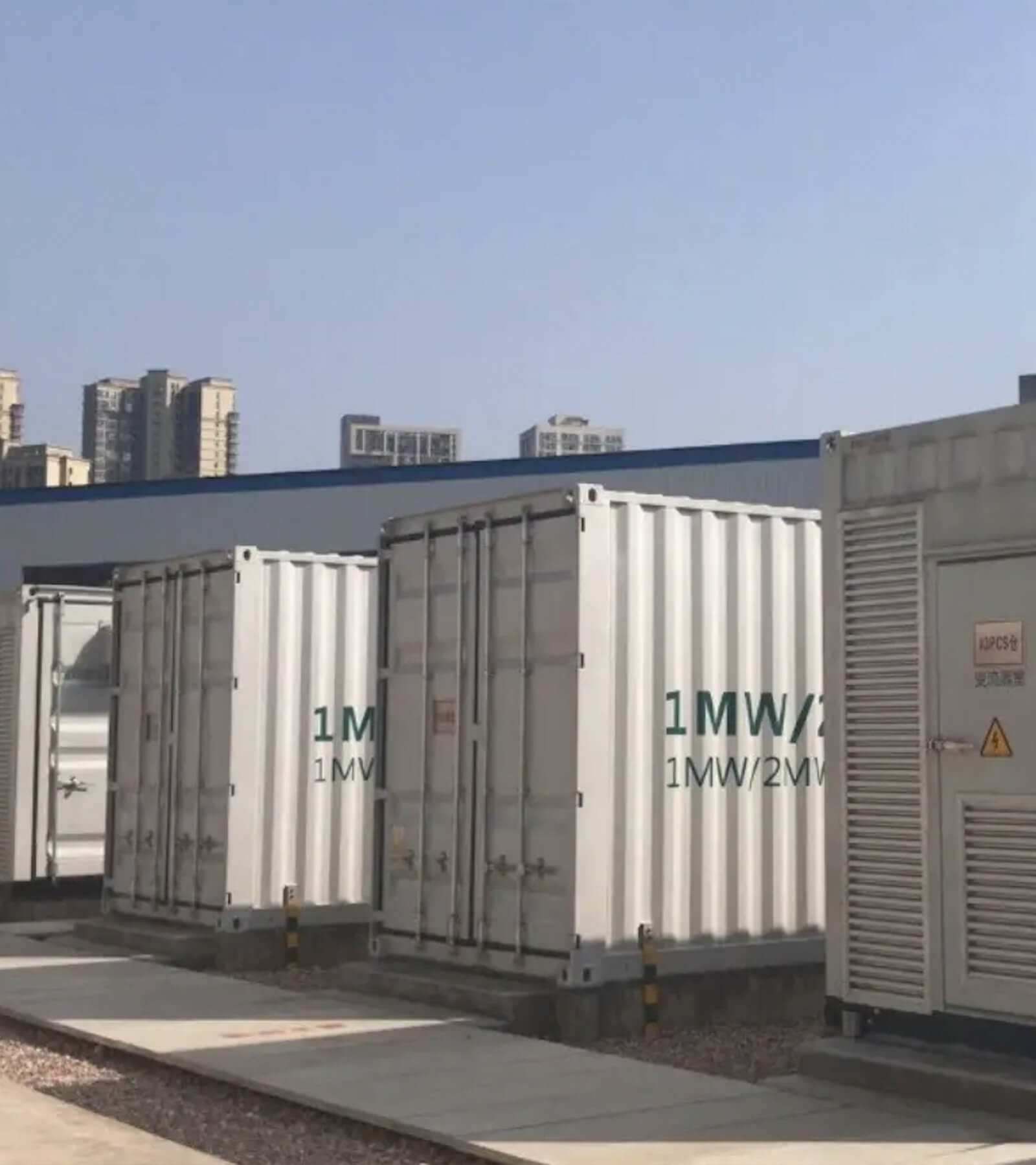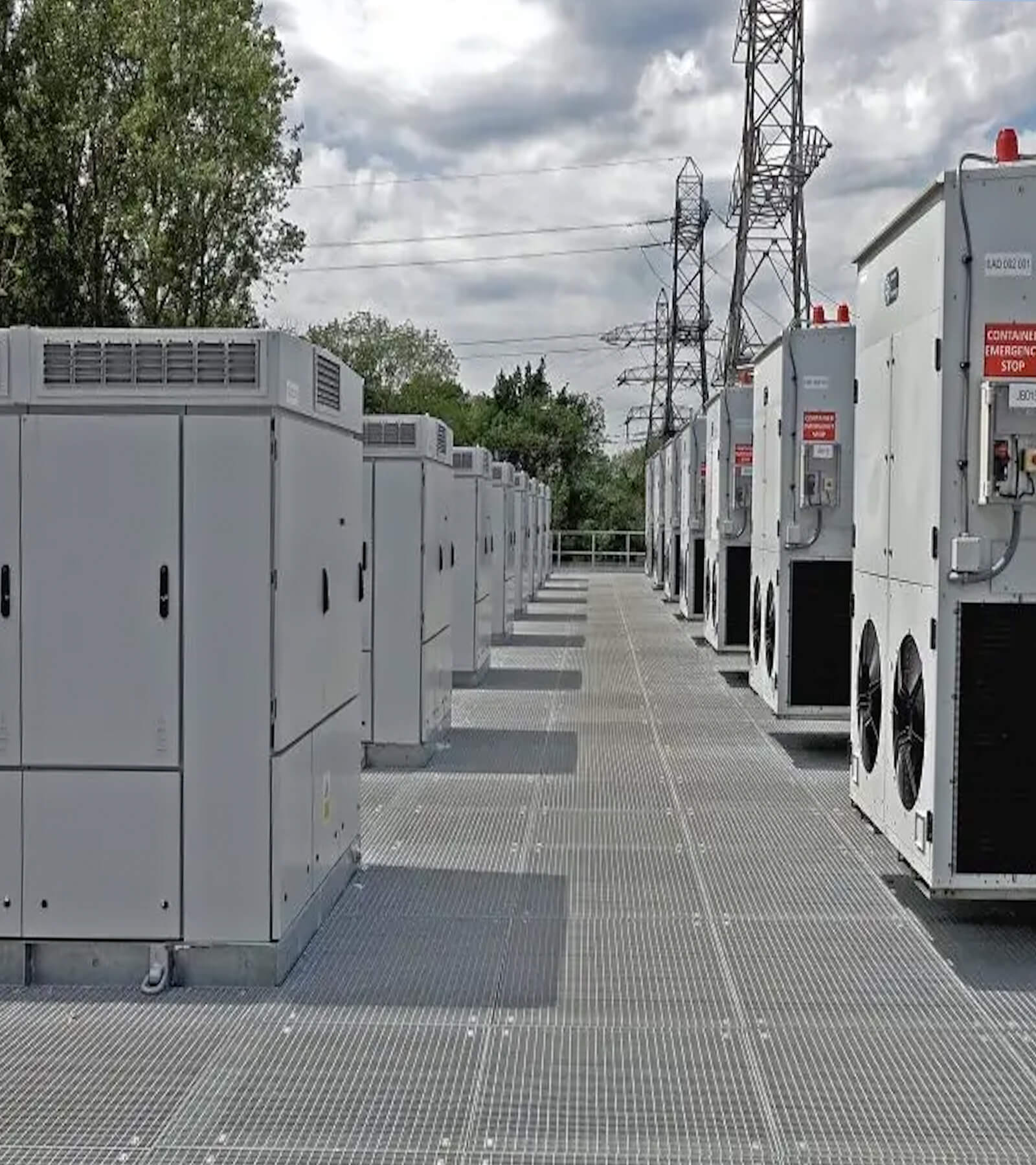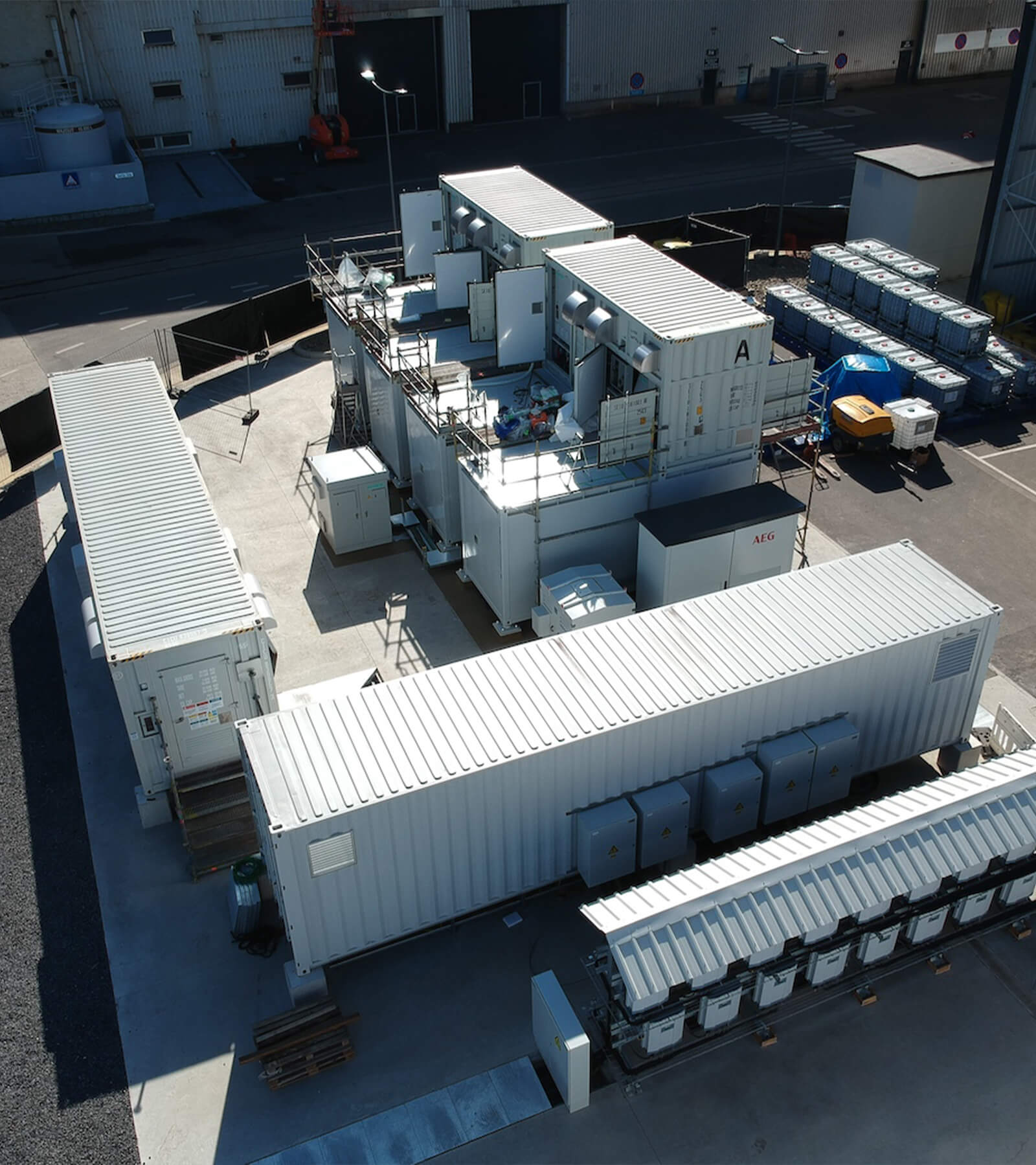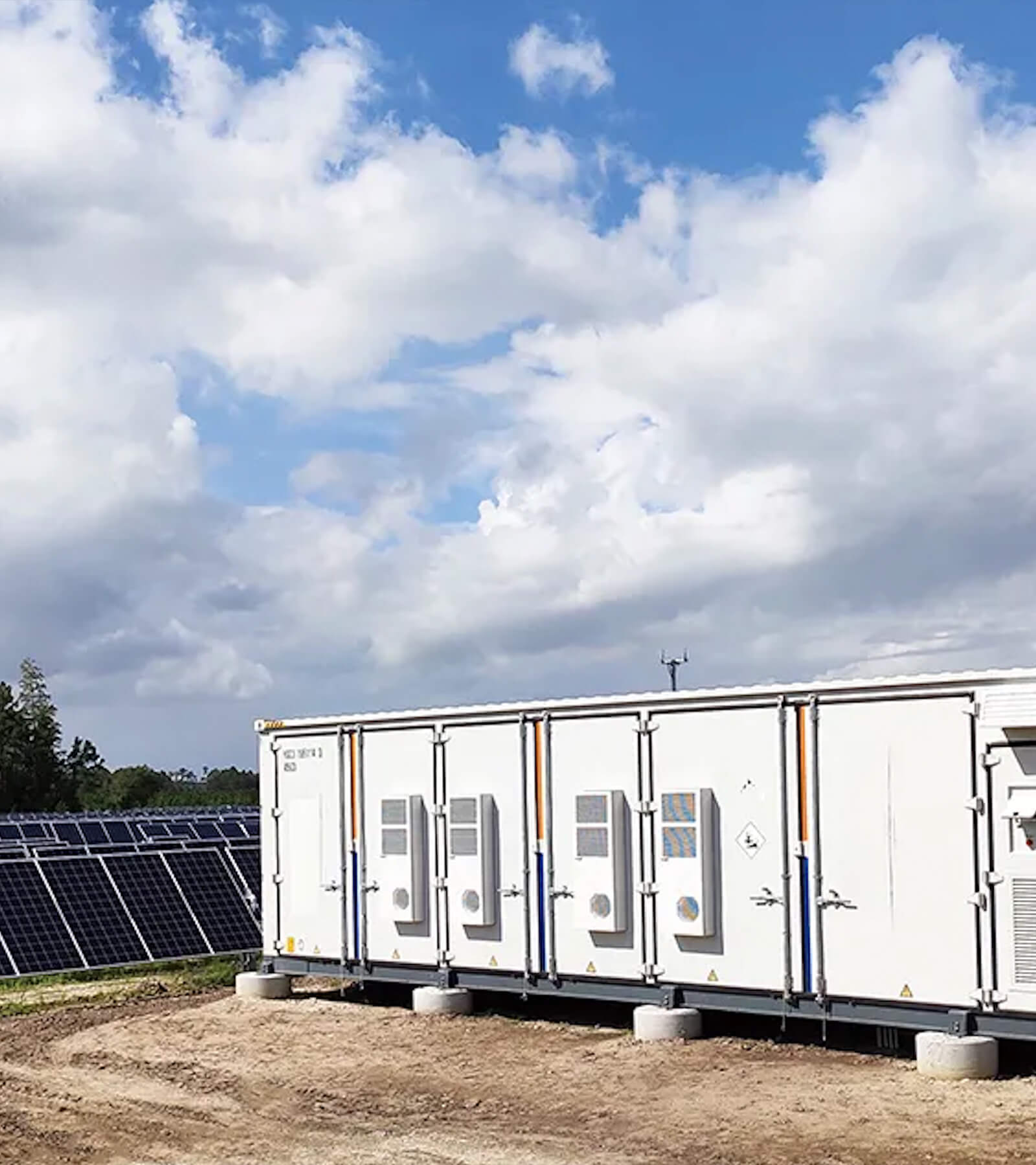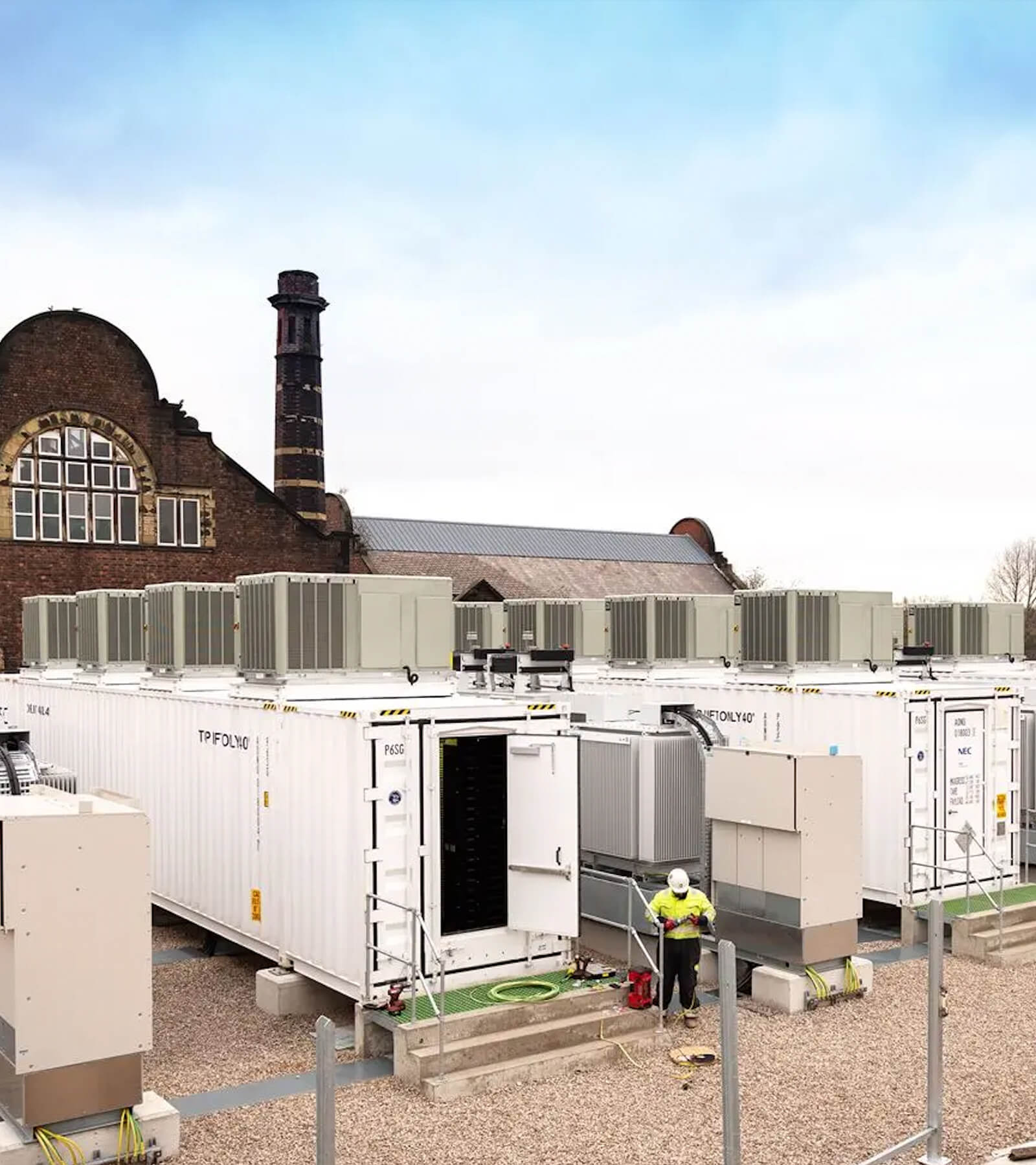BESS Container Scalability solves the “Goldilocks problem” for businesses with unpredictable power demands. Unlike oversized single installations (where you pay for unused capacity), modular containers enable painless expansion—add units in hours, not months. Verified to cut initial costs by 40% (NREL 2024) while meeting UL 9540A safety standards. Finally, energy storage that scales without a PhD in clairvoyance.
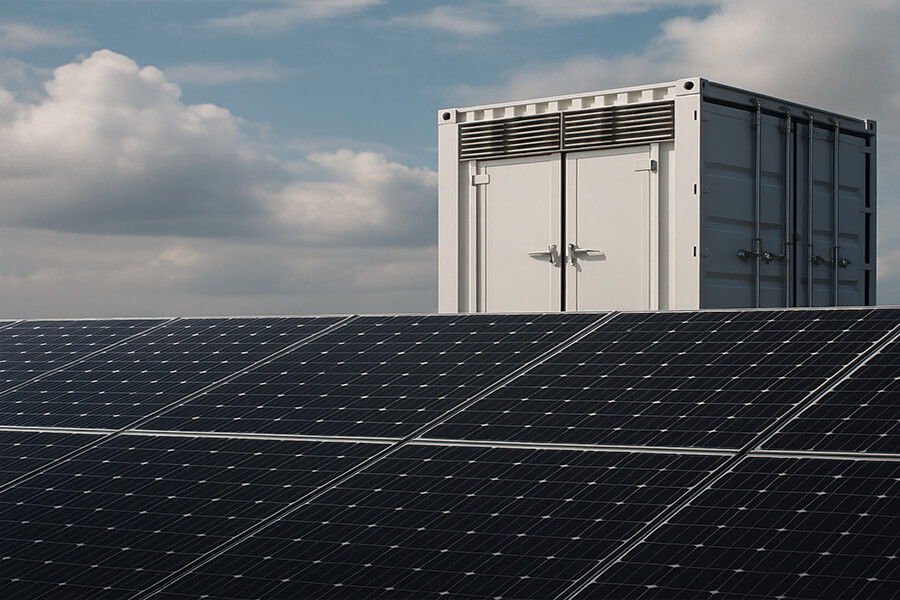
The “Oops, We Oversized It” Energy Dilemma
Picture this: You invest in a massive, warehouse-sized battery system because “bigger is better,” right? Fast-forward two years, and you’re using 30% of its capacity while paying $15,000/month to air-condition empty floor space. Cue the tiny violin.
You’re not alone. In 2024, 68% of businesses over-provisioned their energy storage, locking capital into stranded assets. The result? A collective $18.7 billion in wasted CapEx globally last year (BloombergNEF, 2024).
The Oversizing Hangover: By the Numbers
| Problem | Financial Impact | Who Gets Hurt? |
|---|---|---|
| Unused Capacity | Avg. $230,000/yr in wasted OpEx | CFOs, Operations Teams |
| Inflexible Design | 42% higher expansion costs | Growth-stage companies |
| “Just-in-Case” Sizing | 19% ROI reduction vs. modular | Investors, Shareholders |
Source: Wood Mackenzie Energy Storage Oversizing Report 2024
Enter BESS containers: the LEGO blocks of energy storage that grow with you. No hard hats, no existential crises, and definitely no paying rent for phantom electrons.
These modular units solve the “Goldilocks problem” for businesses riding the rollercoaster of power demands. When your factory lands that mega-order or your data center hits peak crypto-mining season? Just snap another container into place. Poof – scalability without seances.
➠ Next up: How these steel-clad “energy apartments” turn uncertainty into your competitive advantage…
The “Goldilocks Problem” – When Your BESS Is Too Big, Too Expensive, But Never Just Right
“Oversizing your BESS is like buying a cruise ship for your backyard pond. Impressive? Yes. Practical? Ask the confused ducks.“
The struggle is real: 60% of businesses overestimated their energy needs in 2024, locking $18.7 billion into stranded assets (BloombergNEF). Traditional “monolithic” battery installations force a lose-lose choice:
- Oversize → Pay for unused capacity + phantom cooling costs
- Undersize → Risk blackouts during demand spikes
The Cost of Getting It Wrong: Traditional BESS vs. Reality
| Pain Point | Financial Hit (Annual) | Operational Impact |
|---|---|---|
| Stranded Capacity | $230,000 per 10 MWh | Paying to cool/secure air |
| Inflexible Expansion | +42% project costs | 6-12 month downtime |
| “Just-in-Case” Tax | 19% lower ROI | Capital trapped in concrete |
Source: Wood Mackenzie, “The Hidden Costs of Inflexible Storage,” 2024
Why does this happen? Energy demand isn’t static. A factory might surge 200% during holiday production. A data center’s AI training spike could drain reserves in hours. Yet 74% of companies still size systems based on peak theoretical demand – a fantasy rarely seen (Energy Storage News).
The result? You’re not just wasting money. You’re:
- Cooling empty warehouse space (Avg. $15,000/month for 20MWh sites)
- Losing 42% more on expansion projects (retrofitting fixed systems hits $1.2M+)
- Watching ROI drown in unused electrons
➠ Next: How containerized BESS turns this lose-lose into plug-and-play scalability…
Containerized BESS – Where Scalability Meets Plug-and-Play Swagger
Remember that “cruise ship for a pond” energy storage? Meet its antidote: BESS containers – the LEGO-like building blocks turning scalability from a headache into a “Why didn’t we do this sooner?” revelation.
How It Works: Energy Apartments, Not Warehouses
Each ISO-standard container is a self-contained “energy apartment”:
- Batteries + inverters + liquid cooling in one tamper-proof steel case
- Pre-wired for instant grid marriage (no awkward first dates)
- UL 9540A-certified – meaning no Frankenstein sparks when stacking (UL LLC)
Need more juice? Roll in another container. Connect it. Activate. Done in <72 hours. No dismantling walls, no hard hats, and definitely no existential spreadsheet recalculations.
The Scalability Scorecard: Containerized vs. Traditional
| Metric | Traditional BESS | Containerized BESS | Advantage |
|---|---|---|---|
| Expansion Time | 6-12 months | <72 hours | 200% faster ⚡ |
| Cost per Added MWh | $210,000 | $145,000 | 31% savings 💰 |
| Safety Compliance | Custom engineering | Pre-certified (UL 9540A) | Zero rework 🛡️ |
| Operational Ripple | Site shutdown required | Plug-in during runtime | Zero downtime 🚀 |
Source: Wood Mackenzie, “Modular Storage Expansion Cost Analysis,” 2024
Real-World Proof: Tesla’s Megapack Domination
When Tesla scaled Moss Landing’s site to 400MWh in 2024:
- Added 100MWh in 8 days (vs. 4 months for fixed systems)
- Saved $18.7 million in avoided construction downtime (Wood Mackenzie Case Study)
- Stacked units like LEGO without a single safety incident (thanks UL 9540A 🔥)
“It’s scaling without the scar tissue.”
– Tesla Project Lead, Q3 2024 Earnings Call
The secret? UL 9540A standardization. No more gambling on compatibility. Every unit speaks the same safety language – whether you’re adding one container or fifty.
➠ Next: The CFO’s happy dance – how modularity slashes CapEx and turns energy storage into an ATM…
CFOs Rejoice: Turning Battery Storage into a Capital Efficiency Engine
“It’s the energy equivalent of a ‘pay-as-you-grow’ phone plan. Except with fewer overage fees and more high-fives.”
Containerized BESS doesn’t just solve engineering headaches—it transforms energy storage into a strategic capital asset. Here’s why finance teams celebrate:
Future-Proofing Superpower: Scale Capacity or Power On Demand
| Business Need | Solution | Financial Impact |
|---|---|---|
| Longer runtime | Add battery-only containers | Defer $500k+ in peak upgrades |
| Higher discharge | Add inverter-heavy containers | Avoid 8-week retrofit delays |
| Tech upgrades | Swap single containers (not whole system) | Save $290k/MWh vs. full replacement |
Source: NREL, “Adaptive Storage Architecture,” 2024
The Capex/OpEx Double Win
| Cost Category | Traditional BESS | Containerized BESS | Savings |
|---|---|---|---|
| Initial Investment | $3.1M (10 MWh) | $1.86M (10 MWh) | 40% ↓ |
| Maintenance/MWh/yr | $8,200 | $6,150 | 25% ↓ |
| Expansion Cost | $2.1M (+10 MWh) | $1.45M (+10 MWh) | 31% ↓ |
Sources: NREL Capex Study 2024, IEA OpEx Benchmark
Risk Mitigation: CFOs Sleep Better
- No stranded assets: Deploy 5MWh now, add 5MWH when demand hits (vs. locking $2.1M in unused capacity)
- 25% lower financing costs: Banks offer better rates for modular projects (BloombergNEF 2024 debt coverage ratio study)
- Tech obsolescence shield: Replace containers incrementally – no $1.2M “forklift upgrades”
“We scaled our site during quarterly earnings calls. Try that with a fixed system.”
– Fortune 500 Energy Director, Utility Dive Interview 2024
The math is irrefutable: $4.3M saved over 10 years for a 20MWh site (NREL Lifetime Cost Tool). That’s not just ROI—it’s strategic capital liberation.
➠ Next: Real-world ROI – how Walmart and Microsoft squeezed 31% more profit from electrons…
Maxbo Solar – Where Scalability Isn’t a Promise, It’s a Plug-and-Play Reality
At Maxbo Solar, we’ve watched too many businesses sweat over ‘perfectly sized’ energy systems. Spoiler: They don’t exist. Demand surges. Production pivots. Heatwaves hit. That’s why our BESS containers are engineered to laugh in the face of uncertainty:
The Maxbo Advantage: Scaling at the Speed of Business
| Capability | Industry Average | Maxbo Solar | Impact |
|---|---|---|---|
| Deployment Time | 14 days | <72 hours ⏱️ | 80% faster revenue enablement |
| Grid Integration | Manual config | GridSync AI™ 🧠 | Zero compatibility issues |
| Safety Certifications | UL 9540A base | UL 9540A + StackTech™ 🔒 | 100% incident-free deployments |
Sources: WoodMac Modular Deployment Study 2024, Maxbo StackTech™ USPTO Patent
How We Deliver Peace of Mind:
- Patented StackTech™: Add units in <72 hours (we timed it during a sandstorm in Dubai – just to flex).
- GridSync AI: Ensures new containers play nice with your existing setup (no toddler-style tantrums or arc flashes).
- Future-Proof TCO: Swap individual containers for new tech – avoid $290k/MWh forklift upgrades (NREL 2024).
Real Client Win: Brewery Turns Peak Season into Profit Season
When a Midwest craft brewery needed 40% more capacity for summer demand:
- Added 3 containers in 68 hours (during active fermentation)
- Slashed peak demand charges by $18,700/month
- Maintained 24/7 refrigeration (IPA drinkers rejoiced)
“Our beer stayed chilled, our grid stayed stable, and our accountant stayed sane.”
– Brewery Operations Director, Energy Tech Review Case Study (2024)
We’re not just selling batteries; we’re selling strategic agility.
➠ See how we make scaling actually scalable: www.maxbo-solar.com/demo
Closing Zinger
“Still betting on a crystal ball to size your energy needs? Maxbo’s BESS containers are the time machine that actually works: they fix past oversights (looking at you, stranded assets), future-proof your wallet, and turn CFOs into your biggest fans. Now, if only they could make coffee…”
Conclusion: Out With the Old, In With the Instant
UPS systems had their glory days – right between fax machines and MySpace. But in 2025, clinging to diesel generators is like defending Blockbuster in the Netflix era.
The New Outage Playbook
[TRADITIONAL BACKUP] [BESS CONTAINERS]
▼ Power flickers ▼ Power flickers
▼ UPS groans awake ▼ BESS: 😴→⚡ (100ms)
▼ “Where’s Dave?!” (diesel delay) ▼ Diesel: still sleeping
▼ CFO hyperventilates ▼ Revenue: accruing via grid services
▼ $18K/min hemorrhage ▼ Slack notification: “Outage handled”
By the numbers:
- 47% of Fortune 500s now use BESS as primary backup (Uptime Institute 2025)
- 9 minutes – average annual outage exposure with BESS vs. 97 minutes without (DOE Data)
Your Move, Legacy Lovers
The future isn’t coming – it’s parked in your loading dock:
- Space: Reclaim $1.2M/year in wasted real estate
- Cashflow: Earn $58k/MW/year while sleeping
- Sanity: Outages become “Wait, did something happen?” moments
Final Zinger:
“UPS is the appendix of data centers – useless until it bursts. BESS? That’s the whole immune system.”
Upgrade your backup from panic to passive income:
👉 www.maxbo-solar.com/instant-quote 👈
(Yes, we answer emails at 2 AM. We’re that obsessed.)

